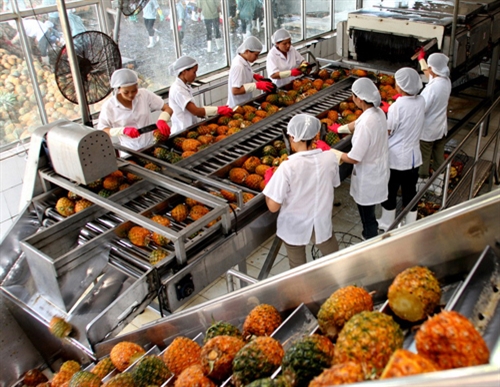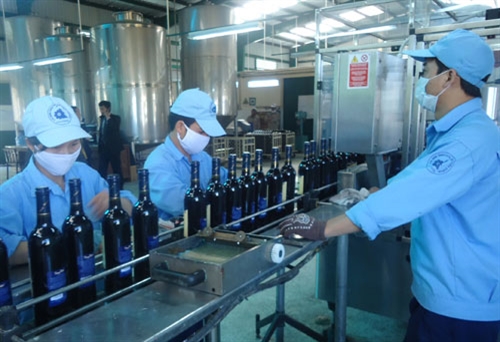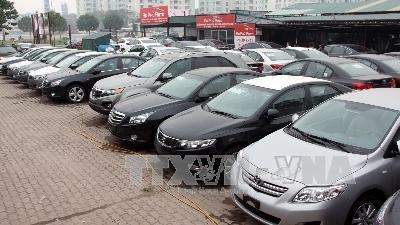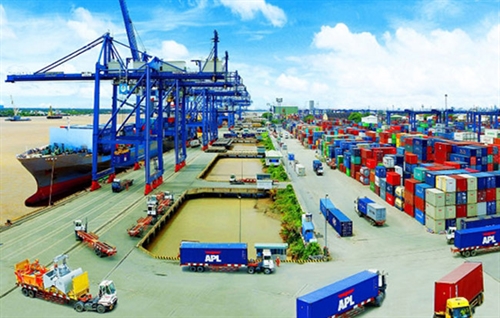>>Draft law to clarify traders’ rights to freedom of import and export
>>Draft law introduces measures to guarantee safety for tourists
Majority of National Assembly (NA) deputies agree with the necessity of the Law on Foreign Trade Management with a view to strengthening state management tools for foreign trade activities, and ensuring effectiveness and transparency of foreign trade in line with international commitments.
They reached the agreement during the NA’s second session held from October 20 to November 23.
They said the law would accelerate administrative reform in management of foreign trade activities while enhancing competitiveness of Vietnam’s economy in the context of the country’s comprehensive and deep integration into the global economy.
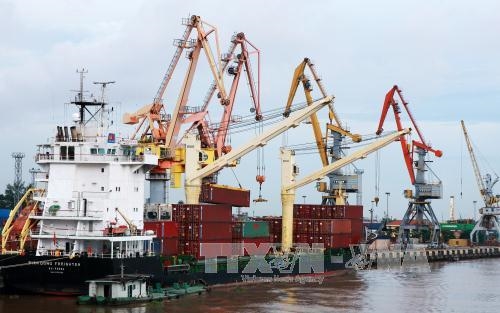 |
| A container ship arrives the Hai Phong port__Photo: VNA |
Deputy Le Anh Tuan of Ha Tinh province proposed the drafters to carefully review the draft’s provisions to ensure compatibility with international commitments made by Vietnam when joining in the World Trade Organization (WTO).
“The draft law’s provisions on quotas remain general and fail to give clear and relevant principles as stipulated in the General Agreement on Tariffs and Trade,” Tuan said.
Meanwhile, deputy Vu Tien Loc of Thai Binh province said the draft law “covers too many unnecessary contents.”
Some issues on foreign trade management are regulated by other laws, he said, adding that the legal system would be cumbersome and put more management responsibilities on authorities. He cited the provisions on temporary import, re-export and transit of goods already included in the Customs Law as an example.
Regarding responsibilities of ministries and other authorities in foreign trade management, deputy Nguyen Van Thang of Hanoi proposed the Ministry of Justice and the Ministry of Foreign Affairs to be involved in solving international trade disputes among governments.
Minister of Industry and Trade Tran Tuan Anh confirmed that the law provides the management of and dispute solution measures in foreign trade activities.
“The name of the draft law does not conflict with the idea of building an incorruptible and constructive Government to serve the development of enterprises”, he said, explaining that “It is aimed at effective state management in compliance with international trade and WTO regulations”.
* Discussing the revised draft Law on Tourism, NA deputies agreed to amend the 2005 Tourism Law with a view to removing obstacles for the sector’s growth.
Deputy Pham Phu Quoc of Ho Chi Minh City said the revised law should aim at turning tourism into a spearhead sector of the economy, and needs to be updated with viewpoints, targets and strategic solutions for tourism development by 2020 with a vision toward 2030.
 |
| Foreign tourists visit the Trang Tien bridge, Thua Thien Hue province__Photo: VNA |
Meanwhile, Van Thi Bach Tuyet, another deputy of Ho Chi Minh City, said rapid growth or profit in tourism should not be achieved at the cost of quality or toleration of foreign firms’ illegal activities.
She urged for tightened travel business conditions to ensure that tourism activities are under control and thoroughly solve existing problems such as foreigners’ provision of tourism services under the name of Vietnamese tour guides, or the imitation of travel brand names.
Regarding conditions for recognizing a national tourist site, Tuyet did not support the provision saying that a tourism site must cover at least 1,000 hectares of land and welcome 500,000 visitors per year in order to be recognized as a national site.
Instead, a national tourist site should be the one with rich cultural and natural values which need to be preserved and promoted in a sustainable manner, she said.
Deputy Quoc suggested the draft specify that a national tourism site can be recognized regardless of form of ownership in order to encourage the private sector to invest in developing attractive tourist destinations.- (VLLF)


